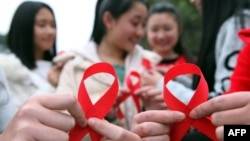eots
no fly list
Frustrated by the shroud of secrecy which protects institutions that violate ethical standards in medical research, community action groups are holding an emergency protest on Saturday, March 26 in New York City in front of Incarnation House, the site at which high risk, painful, medical experiments were conducted on children of color--including babies--who were diagnosed HIV positive.
The children were living in foster care at Incarnation House under the guardianship of the City's Administration of Children Services.
Most of the experiments were sponsored by the National Institutes of Health in partnership with various pharmaceutical companies. These experiments were phase I and phase II clinical trials--which involve the highest level of risk and greatest uncertainty about their safety or efficacy.
Additional Information
Guinea Pig Kids
The News Hole
AIDS Alternatives
BBC: Guinea Pig Kids
ACS Admits Guilt
The Nurse's Story
The House That AIDS Built
ICC Investigation
Orphans on Trial
AIDS Tots 'Guinea Pigs'
Shocking Experiments
Campaign for HIV Tests
The experiments were conducted on children who were wards of the state with no parents to protect them or to advocate for their best interest. These children were used as test subjects--guinea pigs--in multiple experiments testing combinations of drugs and vaccines--as many as 7 at a time. The experiments were conducted on these children in violation of the Code of Federal Regulations which prohibits the use of children who are wards of the state from being used in experiments that involve greater than minimal risk.
Child Abuse - Aids Experiment - Kidjacked
The children were living in foster care at Incarnation House under the guardianship of the City's Administration of Children Services.
Most of the experiments were sponsored by the National Institutes of Health in partnership with various pharmaceutical companies. These experiments were phase I and phase II clinical trials--which involve the highest level of risk and greatest uncertainty about their safety or efficacy.
Additional Information
Guinea Pig Kids
The News Hole
AIDS Alternatives
BBC: Guinea Pig Kids
ACS Admits Guilt
The Nurse's Story
The House That AIDS Built
ICC Investigation
Orphans on Trial
AIDS Tots 'Guinea Pigs'
Shocking Experiments
Campaign for HIV Tests
The experiments were conducted on children who were wards of the state with no parents to protect them or to advocate for their best interest. These children were used as test subjects--guinea pigs--in multiple experiments testing combinations of drugs and vaccines--as many as 7 at a time. The experiments were conducted on these children in violation of the Code of Federal Regulations which prohibits the use of children who are wards of the state from being used in experiments that involve greater than minimal risk.
Child Abuse - Aids Experiment - Kidjacked


